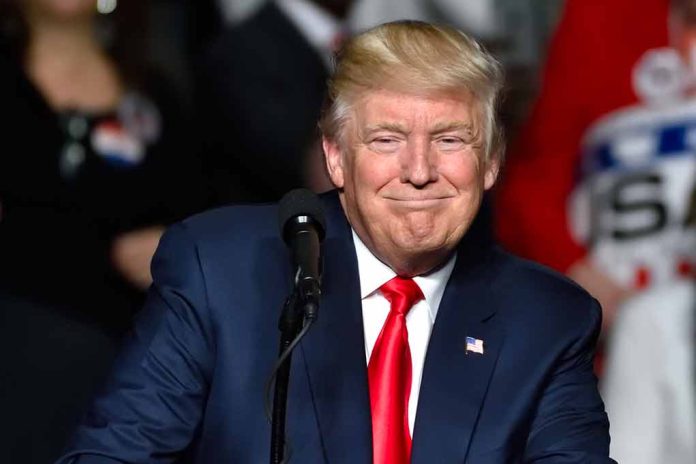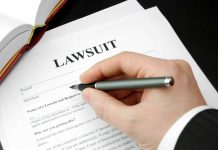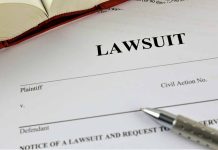
Donald Trump’s legal team is making another attempt to move his hush money case to federal court, raising questions about the outcome.
At a Glance
- Donald Trump seeks to transfer his New York criminal hush money case to federal court.
- Trump was convicted of 34 felony counts related to the payment to Stormy Daniels.
- The defense argues that evidence presented involved Trump’s protected presidential acts.
- Trump’s appeal challenges Judge Hellerstein’s decision as flawed.
Trump’s Legal Team Appeals Again
Donald Trump’s legal team filed an appeal with the U.S. Court of Appeals for the Second Circuit. They are pushing to move the New York criminal hush money case to federal court. Trump’s lawyers argue that the case should be moved because the jury was improperly exposed to evidence related to Trump’s actions as president. They claim these acts should be protected under presidential immunity.
If granted, such a move could potentially grant Trump a stronger defense of immunity. Trump is attempting to challenge Judge Alvin Hellerstein’s decision, which denied his previous request. Judge Hellerstein had ruled that the hush money payments were private matters, separate from official presidential duties.
Former Pres. Trump has again asked an appeals court to transfer his New York criminal hush money case to federal court, reigniting an effort to stall his sentencing or throw out his conviction on 34 felony courts. https://t.co/DTboL5fVxS
— ABC News (@ABC) October 15, 2024
A Closer Look at the Charges
Trump was previously convicted on 34 felony counts related to falsifying business records. These charges stemmed from payments made to Stormy Daniels before the 2016 election. Trump’s defense rests heavily on the concept of presidential immunity, invoking a recent Supreme Court decision asserting his entitlement to such protection for official acts during his presidency.
“Nothing in the Supreme Court’s opinion affects my previous conclusion that the hush money payments were private, unofficial acts, outside the bounds of executive authority,” Judge Hellerstein wrote back in September.
Judge Hellerstein’s ruling has stood firm in considering the payments as private acts by Trump. As such, he argues these acts fall outside the scope of presidential immunity protections. Trump’s legal team, however, says that the payments were related to election efforts, contending that this bears significance in how immunity laws might apply.
What’s Next for Trump’s Case?
Donald Trump’s scheduled sentencing is set for November 26. Trump’s current appeal comes amid a series of legal maneuvers by his team, as they seek to dismiss his conviction or have the ruling overturned based on arguments of presidential immunity.
In anticipation of the appeal results, the Manhattan district attorney’s office is also in the process of preparing a brief, expected to be submitted shortly. Trump’s response will follow. As the legal proceedings unfold, what remains clear is that Trump’s legal team will continue to pursue every available option to contest the conviction.
Sources
- Trump again asks appeals court to move New York hush money case to federal court
- Donald Trump Asks Appeal Court For Second Chance
- Trump Urges Appeals Judges to Move Hush Money Case to Federal Court

















